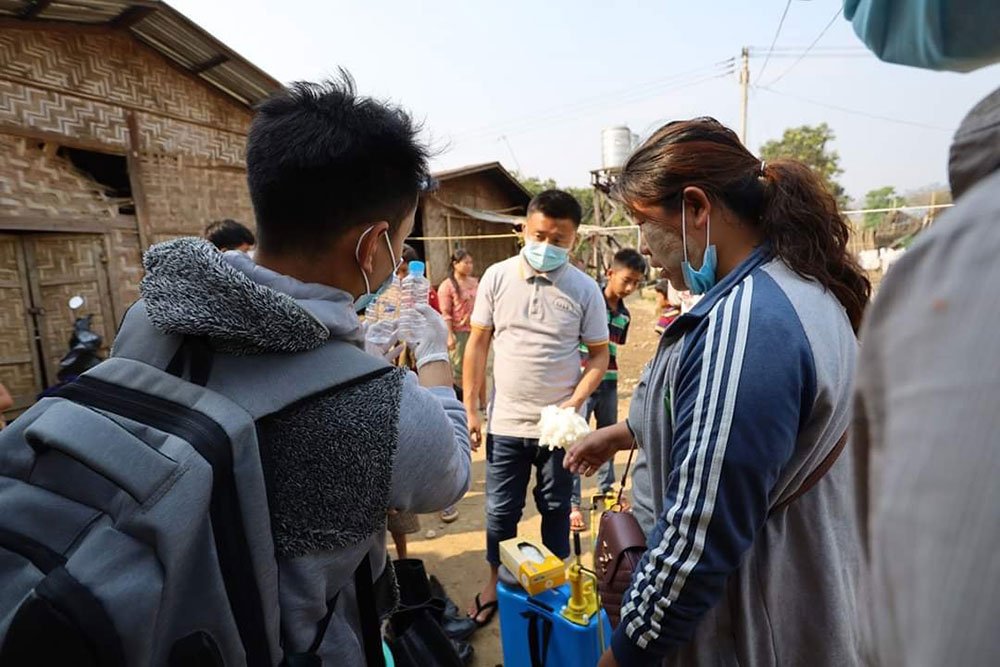Kachin Civil Society Initiates Coronavirus Prevention Measures in IDP Camps

Kachin civil society organizations have started their own preventative programs to fight coronavirus in the internally displaced persons (IDP) camps in Kachin State.
The Kachin State COVID-19 Prevention Network (KsC19PN) was formed by 12 organizations and 100 volunteers on April 3, with the network first reaching out to IDP camps in Myitkyina and Waingmaw townships.
“When we went to observe the IDP camps, the people live in 10×10-foot-wide rooms. Some families have four to five people, but some families have 10 family members,” Seng Nu Pan, a member of the All Kachin Youth Union, told KNG. “It would be so easy for the virus to spread in the IDP camps. It would be easy for people to get infected,” she added.
According to Seng Nu Pan, KsC19PN volunteers sprayed chlorine disinfectant around eight IDP camps in Myitkyina and Waingmaw from April 3-10. They distributed hand sanitizer gel in the IDP camps and checked residents’ body temperatures. They also put up awareness posters about COVID-19 in the camps.
Once they have carried out these duties in 30 camps, the network aims to do the same for orphanages, schools for the visually impaired, and more than 20 wards in downtown Myitkyina.
Duwa Gumgrawng Awng Hkam, vice-chairperson 2 of the Kachin State People’s Party, criticized the Kachin State government for keeping the Kambaiti border gate to China open as the pandemic worsens.
“The government needs to step up on this case. Why haven’t they closed the border gates up until now? We are so worried about it. They should not focus on trading with China amid the COVID-19 pandemic,” Duwa Gumgrawng Awng Hkam told KNG.
Trucks carrying tissue-culture bananas from Waingmaw Township are still going back and forth from Kachin State to China through the Kambaiti gates, locals said.
On March 30, Human Rights Watch urged the Burmese government to launch an emergency program to fight COVID-19 in IDP camps in Rakhine, Shan, Chin, Karen, and Kachin states. There are an estimated 350,000 IDPs in these areas.
Seng Nu Pan said that authorities and members of the public would need to participate with the KsC19PN.
“We need many volunteers because there are thousands of IDPs in the camps. It takes at least two days to spray disinfectant in the IDP camps. We want to invite youth to join us. We want the doctors’ association to participate with us. We also want the government to work with us. We are ready to work for Kachin State,” Seng Nu Pan explained.
On April 10, Burma’s Ministry of Health and Sports reported that there were 28 confirmed cases of COVID-19 in the country. Dr. Naw Shelter, deputy director of Kachin State’s health department, said that nobody had tested positive for the virus in the state.
With testing technology and health services widely unavailable throughout much of Burma, locals fear that actual rates of infection may be higher than what are being officially reported.




